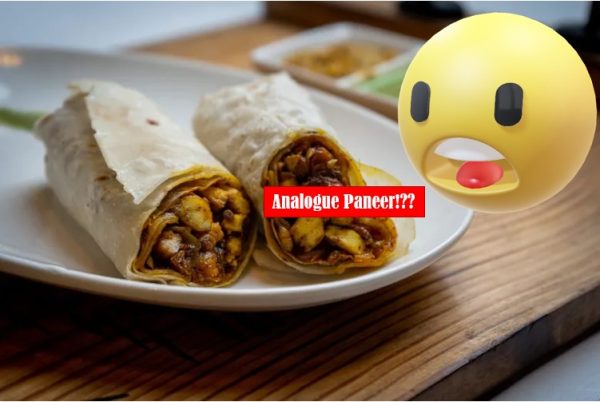
Zomato Receives Backlash Over Analogue Paneer – Know About Analogue Paneer
“Analogue paneer” refers to a substitute for traditional paneer (Indian cottage cheese) made with alternative ingredients, often to reduce costs or suit specific dietary needs. It might use vegetable oils, soy protein, or other dairy alternatives to mimic the texture and taste of paneer but with different nutritional content. Some manufacturers produce analogue paneer to cater to vegan consumers or to reduce production costs compared to dairy based paneer.
Recently Indian restaurant industry Zomato received backlash for using analogue paneer in its food. Zomato is an Indian multinational restaurant aggregator and food delivery company. It connects users with a wide range of restaurants, cafes, and other food vendors and provides online ordering, delivery, table reservations, and reviews. It is a Food delivery industry in India and has expanded its services internationally, becoming one of the major players in the food tech industry.
While analogue paneer may offer a lower-cost, plant-based option, it is typically less nutritious than traditional paneer and can contain ingredients that might not support overall health when consumed regularly.
Analogue paneer is considered less healthy for consumption than traditional paneer due to following reasons:
- Lower nutritional value: Traditional paneer is made from milk and is rich in protein, calcium, and other essential nutrients. Analogue paneer, on the other hand, is typically made from vegetable oils and other fillers, which may lack the protein and calcium content found in dairy-based paneer.
- High in trans fats and saturated Fats: Some analogue paneers use hydrogenated vegetable oils, which can be high in trans fats. Trans fats are known to raise bad cholesterol (LDL) and lower good cholesterol (HDL), increasing the risk of heart disease, inflammation, and other health issues.
- Added preservatives and fillers: To improve shelf life and texture, manufacturers often add artificial preservatives, stabilizers, and emulsifiers. Some of these additives may be harmful if consumed regularly, as they can disrupt digestion and may have other adverse health effects over time.
- Digestibility: Analogue paneer may be harder to digest for some individuals, especially if it contains elevated levels of processed ingredients or additives. Traditional paneer, on the other hand, is more easily digestible for most people due to its natural composition.
- Possible allergenic ingredients: Some analogue paneers use soy or other plant-based proteins that can trigger allergies in sensitive individuals. Traditional paneer is less likely to cause allergies, although it does contain lactose, which can be an issue for those who are lactose intolerant.
Why did Zomato receive the backlash over using analogue paneer?
The use of analogue paneer by restaurants, particularly without clear labeling, has sparked significant backlash among consumers. Main reasons for the backlash-,
- Lack of transparency: Customers expect traditional dairy-based paneer in their dishes, but analogue paneer is sometimes used without disclosure. This lack of transparency is seen as misleading, especially when the product differs nutritionally and taste-wise from authentic paneer.
- Health concerns: Many consumers are concerned about the health effects of analogue paneer, particularly if it contains hydrogenated oils or additives that may impact cholesterol levels, digestion, and overall health. For those specifically looking for high protein or calcium rich food options, the use of lower-quality substitutes can be a disappointment.
- Trust and quality issues: Using an analogue paneer can hurt a restaurant’s reputation, as customers may feel the quality is being compromised to cut costs. This has led to negative reviews, customer complaints, and even boycotts in some cases.
- Misalignment with dietary preferences: Some analogue paneers are not vegan or lactose-free (eg. they may use casein, a milk protein), leading to further frustration for those who have dietary restrictions or preferences.
This backlash has put pressure on food delivery platforms like Zomato to encourage restaurants to disclose when they use substitutes. Some regions and food authorities are also exploring regulatory measures to require clearer labeling and enforce stricter quality standards for analogue food products.
In many places, labeling regulations require restaurants or sellers to disclose the use of substitutes like analogue paneer to help consumers make informed choices.
If you are concerned about receiving analogue paneer in an order, you might consider:
- Reading descriptions carefully: Some menus specify if they use dairy free or vegan substitutes, so checking the dish description might provide hints.
- Contacting the restaurant: Asking the restaurant directly if they use traditional paneer or an analogue can give clarity, especially if dietary needs or health concerns are a factor.
- Reading reviews or comments: Occasionally, other customers may mention it if they notice analogue paneer being used, so reviews on Zomato itself can sometimes provide insights.
Awareness about food transparency is increasing, so Zomato and other delivery platforms may start being more explicit about such ingredients to support informed consumer choices.
References:
Image credit: https://pixahive.com/photo/paneer-roll/ (CC0 free to use)
Author: Sumana Rao | Posted on: October 30, 2024
« Understanding Impact Of Weight Loss Drugs Nicotine And Non-Nicotine Vaping Negatively Impacts Vascular Health And Oxygen Level »






















Write a comment